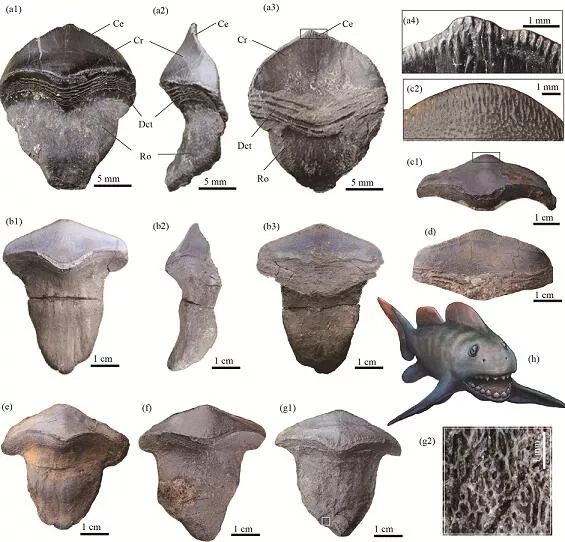Fossils of ancient petal-shaped shark teeth found in Yangquan

A selection of fossil samples of the Petalodus ohioensis. [Photo/Shanxi Daily]
Fossil teeth from a prehistoric giant shark called Petalodus, dating back around 290 million years, were recently discovered in China for the first time in an area administered by Yangquan city, located in North China's Shanxi province.
Seven fossil teeth were found, comparable in size to the modern-day great white shark's teeth, according to a researcher involved with writing up the discovery.
A study on the find was published in the English edition of the most recent issue of the journal Acta Geologica Sinica.
According to Gai Zhikun, an associate researcher at the Chinese Academy of Sciences' Institute of Vertebrate Paleontology and Paleoanthropology, the shark with the petal-shaped teeth is a primitive and mysterious animal which lived between 360 million and 250 million years ago.
Judging from the size of the fossil teeth found, the prehistoric giant shark had a body length of 3-5 meters, said Lin Xianghong, one of researchers for the study.
Abundant fossil evidence indicates that Yangquan was a warm, translucent and shallow sea close to the equator more than 200 million years ago, suitable for the survival of various marine life.
To date, fossils of the Petalodus have been discovered in China, Japan, America and Europe, indicating that this species of shark had the ability to move across oceans and was a predator with exceptional swimming abilities.
The study has furthered scientists' understanding of the biodiversity of the Permian Uralian in North China, greatly expanded the Petalodus shark distribution in the northern hemisphere and provided important fossil evidence of transoceanic migration.





